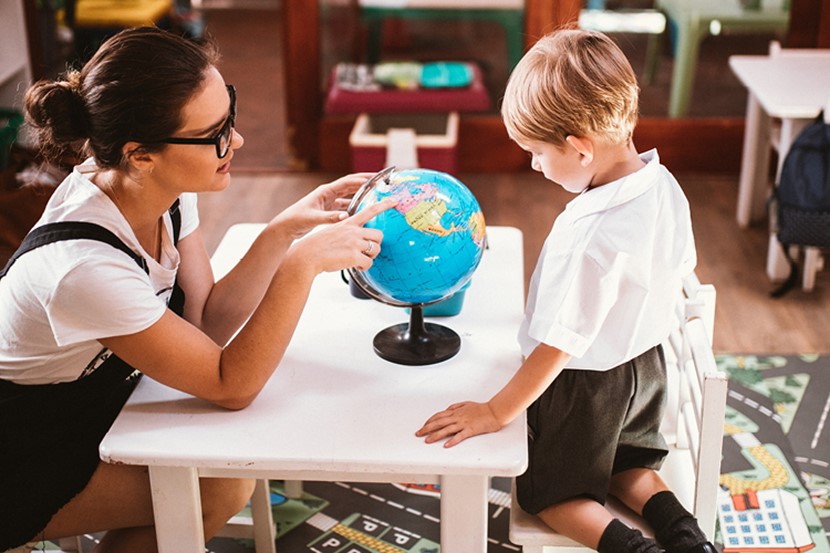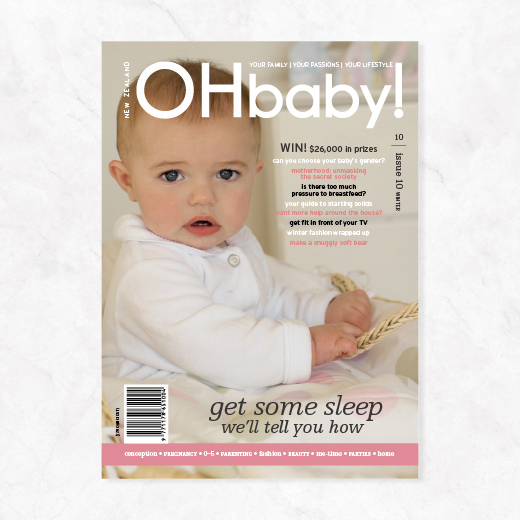How to: identify and parent a gifted child

A gifted child has the potential to make a significant difference in the world, adding to knowledge, changing ideas, or reaching new heights in performance. Jilly O'Brien discusses parenting a child with exceptional abilities.
Imagine that you are five years old, have just started school, and you give a PowerPoint presentation on conductivity, your current passion, to your class. The class don't understand it, the teacher doesn't understand you, and you end up in tears, reluctant to ever set foot in the place again. Your parents don't understand how their bright and eager child has become withdrawn and unhappy, and the school has no answers either, suggesting it might be a phase.
Gifted children occur all over New Zealand, from all backgrounds and cultures. In recent years, we have become more aware of identifying them and trying to understand their specific needs, academically, socially and emotionally, so that we can ensure their abilities are encouraged to develop.
HOW WOULD I IDENTIFY MY CHILD AS GIFTED?
Gifted children are "children who possess an innate capacity to perform at an exceptionally high level in one or more areas of life". Children with exceptional abilities can exhibit them in all areas of their lives, both in their work and their behaviour. A gifted child may display some of the following signs, adapted from Rosemary Cathcart's They're Not Bringing my Brain Out:
✔ Learning to read earlier than their peers, and understanding what they are reading to a greater degree.
✔ Learning basic skills straightaway without the need to practise or repeat them.
✔ Heightened curiosity and desire to find out the why and how of absolutely everything.
✔ Fertile imaginations and enjoyment of fantasy play, often in the early years, constructing complicated games with complicated rules.
✔ Enjoying the company of older kids and adults.
✔ Having a highly developed sense of humour, enjoying puns and word play, for example.
✔ Absolutely passionate about an interest or school subject, but disinterested in another.
✔ Possessing an excellent memory.
✔ Thinking unconventionally, having original and possibly wacky ideas or thoughts.
✔ Seeing relationships, cause and effect, and links between ideas.
✔ Persistence in finding out the answers (and will often argue black is white!).
✔ Sensitivity and a strong sense of justice and fair play.
✔ Perfectionist tendencies and high expectations of themselves that often leave them frustrated when they feel they haven't measured up.
No gifted child will display all these characteristics, and this is not an exhaustive list, but it may start ringing some bells for you if you notice your child exhibits a lot of these, to a great intensity.
Danielle Nicholson knew her daughter might be exceptionally able when she saw "the way she would persevere for over an hour with something like a puzzle or a jigsaw that caught her interest, even at three years of age. She could also solve maths problems without ever being taught them - her answers were intuitive, and when you questioned her about how she got the answer, she couldn't tell you."
My own daughter, now six, walked and talked early, and at age two started to display a real depth of feeling and intensity that continues to this day. She is concerned with truth and justice, terrified of scary books and films, and doesn't understand how somebody can be your friend one minute and not the next. From a very early age she would play extremely complicated games, and even the simple ones such as "mums and dads" or "tea party" had to be completely authentic, with total attention to detail. She would also continue playing long after other kids had lost interest.
A friend of mine has a son who, as a three- and four-year-old, used to study the Lego catalogues, and I mean really pore over them! Many boys play Lego, but this little lad had the passion and ability to construct things out of Lego long before the outside of the Lego box said he was old enough.
It is important for parents to trust their instincts, so if you feel that your child thinks differently - deeper, more intensely, and more conceptually than her peers or siblings, then trust your gut feeling.
WHAT TO DO ABOUT IT
Positive parenting, such as having consistent rules and consequences, and celebrating successes, are as important when raising a gifted child as any other child.
Step back and observe your child if you think they might be gifted. Watching them go about their play and daily life gives huge insights that are not available if they are being hurried from A to B. Listening, appreciating, being the willing participant in their complicated game that nobody else wants to play, discussing ideas, and offering support are key roles. So what if your preschooler does not play with the toy microphone as a budding pop star, but makes it into a lighthouse and watches the shadows on the floor revolve around it while they ask you about the rotation of the sun? Watch, listen, support and celebrate your awesome child, while also offering strategies in order for them to cope with the world we live in.
Keep a diary or scrapbook and write down all your child's important milestones, including the amazing things they said, starting in the preschool years. Keep any creative artwork or writing that your child may have done. This can be used as a running record and evidence to show teachers why you feel your child may be gifted, especially if they do not necessarily show their talents in class (some gifted children do try to dumb down their talents in order to fit in).
Preschools or kindergartens are well placed to identify giftedness in children. Talk to your child's preschool or kindy about your observations and your child's interests. You can also have your child assessed by an educational psychologist.
Leonie Sanders says her three-year-old daughter developed "a passion for letters and all things postal. Her preschool teacher helped her to take her interest as far as she wanted to go. They wrote a postcard together, got a stamp and posted it. It was a very real experience which left her fulfilled and valued in her learning."
Primary schools try hard to meet the needs of all our children, and it is a legal requirement that they provide for children of exceptional ability. As your child reaches school age, here are some of the questions and practices to support your gifted child:
✔ Ask your child's school if you can see their Gifted and Talented policy, and arrange a discussion with their Gifted and Talented (GATE) coordinator to find out more.
✔ Discuss with your child's teacher how they plan to meet your child's needs. This may be by differentiating the work, offering accelerated classes, providing activities such as a debating or chess club after school. Offer information on how your child likes to learn and their passions and interests.
✔ Consider a school withdrawal programme, such as the One Day School, or Gifted Kids Programme, where students get to spend one day a week with like-minded peers to concentrate on learning. There is also Small Poppies, a gifted programme for preschoolers, if you live near one of the major centres.
✔ Join a parents' group or one of the support organisations set up in New Zealand for gifted children and their families, such as NZ Association for Gifted Children www.giftedchildren.org.nz
✔ Check your newspaper for extra-curricular activities that may be organised through universities, museums, summer schools, local libraries, or aquariums.
WHERE TO GO FOR ADVICE
Parenting a gifted child is a great challenge, but also a rewarding one. Supporting your gifted child socially and emotionally, as well as academically, is very important, as these children often don't share the interests of their same age peers, and can feel isolated and left out.
If this article leaves you saying, "Hang on, that sounds just like my little one!" the websites below will give you more information, advice and support about giftedness and gifted education in New Zealand.
www.giftedchildren.org.nz has a multitude of different resources on giftedness within its online community.
gifteddevelopment.org deals with visual spatial learners and those who are "twice gifted", or gifted with a learning disability.
New Zealand Ministry of Education website
Jilly O'Brien is a Central Otago REAP STAR Programme teacher. Based in Alexandra, this programme allows for students from different schools, in years 5 and 6, to come together one day a week to learn with like-minded peers. This is especially important in a rural area like Central Otago, where schools may be small and isolated. One Day School therefore gives students social and emotional support, as well as intellectual challenge. Jilly follows the REACH model, a New Zealand model for gifted education. Jilly also teaches gifted high school children at Cromwell College in their Half Day School programme.
Resources
They're not Bringing My Brain Out, by Rosemary Cathcart, is available from Hodder Education (or your library), and is essential reading.

AS FEATURED IN ISSUE 10 OF OHbaby! MAGAZINE. CHECK OUT OTHER ARTICLES IN THIS ISSUE BELOW

















